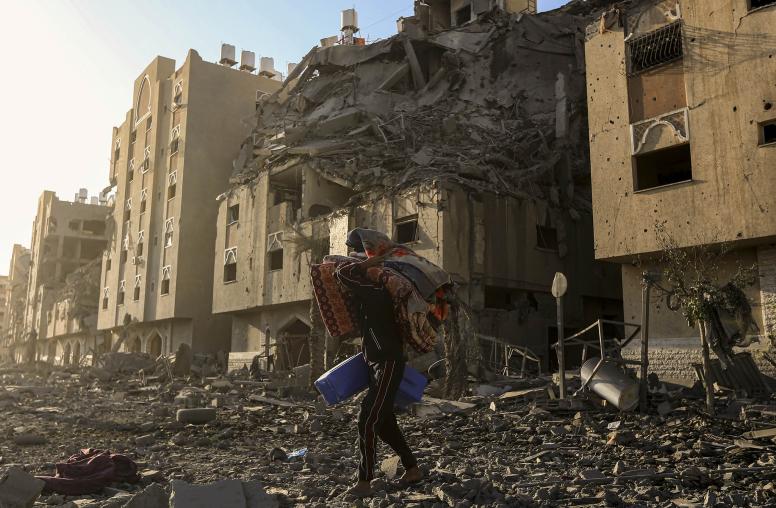“Refusing to be Enemies” at Israel’s Hand in Hand Schools
A Model of Jewish and Arab Coexistence in the Face of Conflict
On December 18, USIP hosted members of the Hand in Hand school community to discuss their experiences in the wake of the recent attack on their school in Jerusalem. Panelists discussed the Hand in Hand model of coexistence within the broader field of peacebuilding, as well as the waves of diverse support and interest they’ve seen in the wake of the attack.

Hand in Hand schools are the only public schools in Israel where Jews and Arabs take classes together and learn both Hebrew and Arabic in an integrated, multicultural setting. On the evening of November 29, 2014, the flagship K-12 campus -- the Max Rayne Hand in Hand Bilingual School in Jerusalem -- was attacked by arsonists who set fire to two first-grade classrooms and graffitied hateful statements against Arabs and against the very principle of co-existence on the school walls. In the wake of the tragedy, various Israeli communities, both Jewish and Arab, have rallied around the Hand in Hand community, seeking deeper understanding of and bringing greater attention to its unique model of coexistence.
Topic included the Hand in Hand School model of education; the school community's experience and approach in the face of rising tensions between Jewish and Arab communities across Israel; and the unique role this network of schools plays in the broader field of Israeli and Palestinian peacebuilding.
Speakers
- Rebecca Bardach
Director of Resource Development and Strategy and Parent, Hand in Hand - Mouran Ibrahim
9th Grader, Max Rayne Hand in Hand Bilingual School in Jerusalem - Lucy Kurtzer-Ellenbogen
Director of Arab-Israeli Programs, United States Institute of Peace (moderator) - Ned Lazarus
Visiting Assistant Professor of International Affairs, George Washington University - Inbar Shaked Vardi
9th Grader, Max Rayne Hand in Hand Bilingual School in Jerusalem



